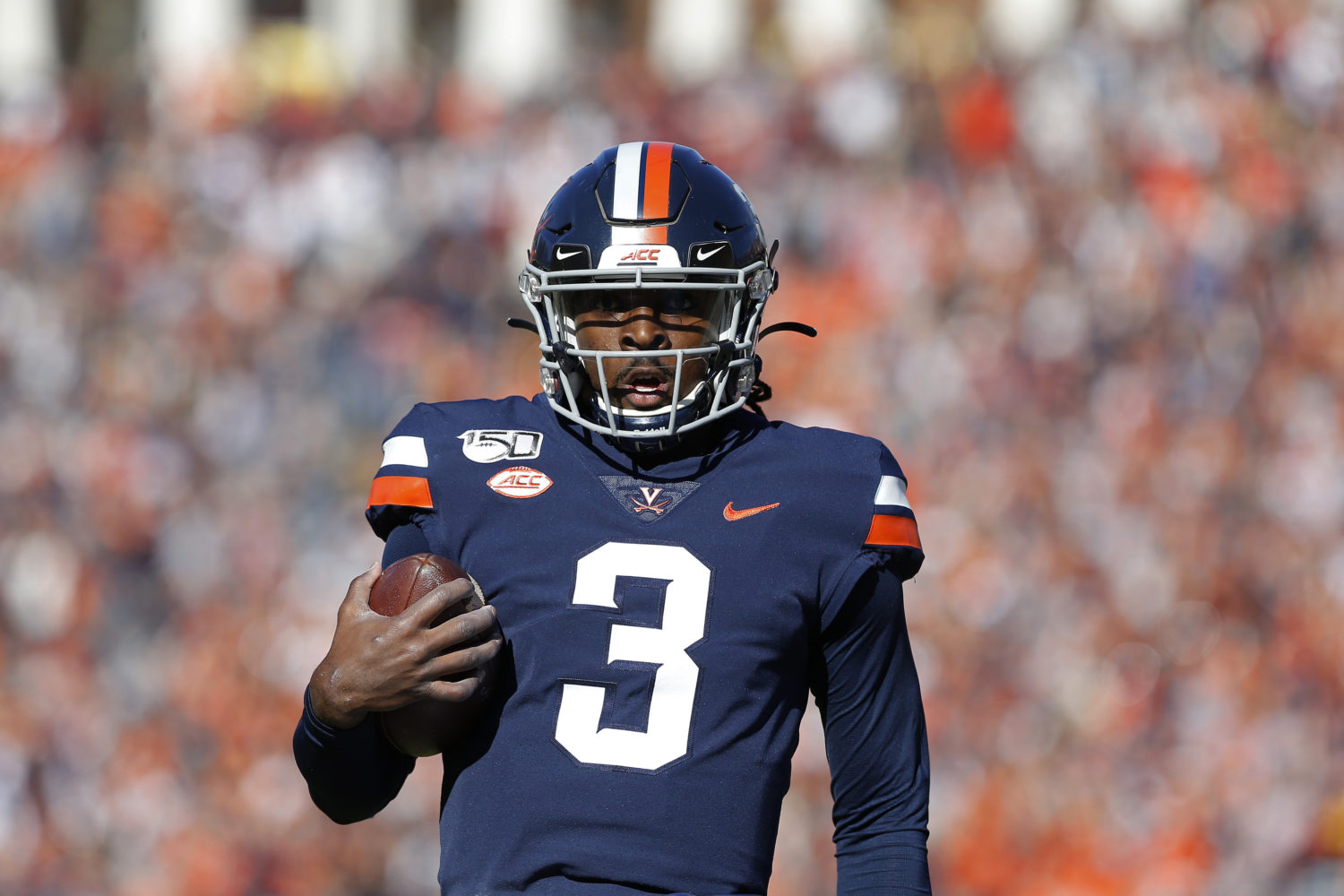
For the second consecutive season, Florida will finish its season in a New Year’s 6 Bowl.
The Gators were invited to participate in the Orange Bowl on Dec. 30 (8 p.m. ET, ESPN). Florida’s opponent will be the No. 24 Virginia Cavaliers out of the ACC.
One of the nation’s oldest bowl games, the Orange Bowl is likely the high water mark for Florida football during this lost decade and a testament to the growth and progress the program has made since the arrival of Dan Mullen as head coach in November 2017.
The Gators are 3-0 all time in Orange Bowls, but this marks Florida’s first appearance in the Miami postseason classic since the end of the 2001 season, when the Gators crushed Maryland 56-23 in Steve Spurrier’s final game as UF coach.
This marks Virginia’s first appearance in the Orange Bowl game. The Gators and Cavs have only met one time previously– a 55-10 Florida victory in 1959.
Here are five quick things to know about Florida’s Orange Bowl opponent, Virginia.
How they got here
Virginia got this far by hiring the right coach.
UVA is a brutally difficult football job and the program hadn’t had much success since the retirement of the legendary George Welsh in 2000. Welsh led the program to 12 bowl games in his tenure but, after modest success in the early years under Al Groh, the program fell off significantly. The Cavaliers had not been to a bowl in 5 years when coach Bronco Mendenhall arrived from BYU in 2016.
It was surprising Mendenhall left BYU, where he could have coached forever if he had wanted. Mendenhall won 10 games or more 5 times at BYU and the Cougars made a bowl in each of his 11 seasons. That he left BYU for Virginia was even more stunning.
In many ways, Mendenhall is like Florida head coach Dan Mullen, a turnaround expert who consistently gets the most out of his talent, which he has done in Charlottesville.
It took Mendenhall one year to turn a 2-10 program into a bowl team, and the Hoos have improved their win total every season since, winning 8 games last season — including the Belk Bowl over South Carolina — and 9 games this season.
Quarterback
Bryce Perkins, Virginia’s senior quarterback, is a two-year starter and the engine of the Hoos offense.
Perkins led the ACC this season in total offense, with 3,960 yards accounted for and 29 TD produced (18 passing, 11 rushing). When he’s good, he’s brilliant, as he was in snapping Virginia’s 15-year losing streak to Virginia Tech in the Commonwealth Cup last month. In that game, Perkins threw for 311 yards and ran for 164, accounting for 3 TD and more or less willing Virginia to victory all by himself.
He’s an All-ACC player and a star and if Virginia is to pull an upset, he’ll have to play well.
Offensive strengths
Three Virginia receivers caught 60 passes or more this season, a testament to the depth and options the Cavaliers have at the position. All three players are different and dangerous in their own way.
Hasise Dubois is a burner with prototypical NFL size to boot. He’ll almost certainly be at the NFL Combine this spring and can stretch the field and get behind a defense.; He averaged 15 yards per reception and had 10 explosive plays of 30 yards or more on the season. He’ll be a good test for a group of Florida safeties that has shown some vulnerability on the deep ball this season.
Terrell Jana has excellent hands and runs terrific routes. He’s a reliable third-down receiver (40% of his targets) and his 67 receptions ranked second on the team.
Finally, Joe Reed, the team’s leading receiver with 70 catches, is limited as a route runner but a real playmaker with the ball in his hands. Virginia does not run the ball very well so the offense uses Reed frequently on short routes and screens, yet the Cavs send him over the top on occasion too.
Moreover, Reed is the nation’s leading kickoff returner. He led FBS at this season at 34.3 yard per return and had two kickoff returns for touchdowns.
Defensive strengths
Mendenhall’s background is defense and his three best playmakers on that side of the ball are all cerebral, talented linebackers.
The best of the lot is probably Noah Taylor, who ranked among the ACC’s leaders in tackles for loss (11.5) and sacks (7). Jordan Mack is another guy that Virginia likes to use in exotic blitz schemes — he led the team with 7.5 sacks. Zane Zandier is the team’s spiritual leader and quarterback on defense: his 95 tackles were a team best and his 11.5 tackles for loss tied Taylor for the team lead.
Weaknesses
Virginia plays physical and aggressive defense, but lacks elite athleticism and cover guys on the back end. That has shown against high-level offenses this season.
Trevor Lawrence torched Virginia for 302 yards and 4 touchdowns Saturday night in the in the ACC Championship Game. Young Hendon Hooker and Virginia Tech threw for over 300 yards to keep the Commonwealth Cup game close; James Blackman and FSU threw for 234 yards and 3 TDs. You get the idea.
The Cavs defense ranks 40th nationally in total defense and a respectable 35th nationally in S & P defensive efficiency, but the Cavs would be even better if they could slow passing offenses.
They can’t. The Hoos ranked a below average 76th in pass efficiency defense in 2019 and a troubling 79th in yards allowed per pass attempt.
That’s not a great formula to face Kyle Trask and an elite group of Florida receivers that has found success against everyone they’ve played this season.
Neil Blackmon covers Florida football and the SEC for SaturdayDownSouth.com. An attorney, he is also a member of the Football and Basketball Writers Associations of America. He also coaches basketball.







